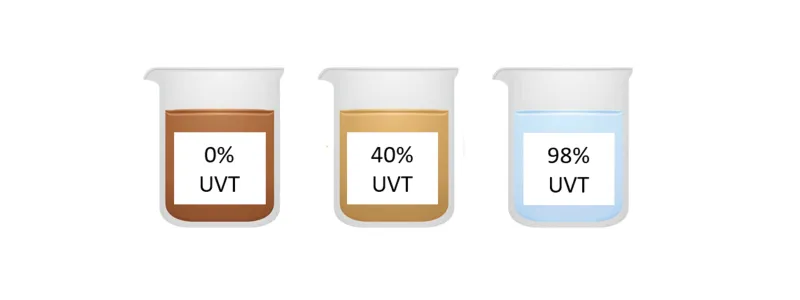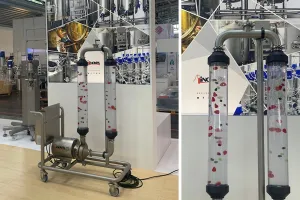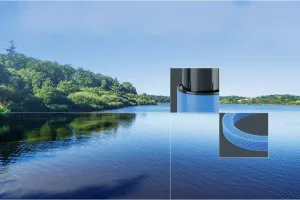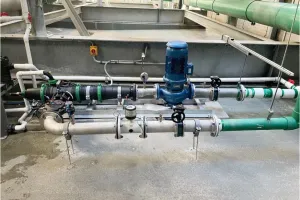
What Is UV Transmittance (UVT) And Why Is It Important To Know?
When giving a solution, the UV Group (Hanovia, Berson, and Aquionics) makes sure that all the three key parameters like UV dose, Flow rate and UV Transmittance (UVT) are known. This way we can assure our customers that they will receive a UV system that actually performs as per their needs.
While UV dose and Flow rate are easy to understand, my experience shows me that most of the customers does not know what UV transmittance is and how important it is when sizing a UV system.
So what is UV Transmittance (UVT)?
UV Transmittance (UVT) is the amount of UV light passing through the water. It is measured in %
Why is UVT important to know?
UVT is the most important water quality parameter for designing a UV facility because selection of the design UVT affects both UV equipment capital and operating costs. Overly conservative design UVT values can result in the need for additional equipment and larger reactors while inappropriately high UVT design values can violate permit levels by creating insufficiently disinfected water.
UV transmittance percent
The UVT has big impact on the performance of UV system, that is why it is a critical parameter when sizing a system. If you have lower UVT than originally sized, then the delivered intensity will be lower and respectively the disinfection won’t be efficient.
How is UVT measured?
The amount of UV light at 254nm to pass through a defined path length of sample water compared with the same path length with Distilled water. Standard path lengths 10mm.
How UVT is measured
Here you can see some Typical UVT values for different type of water:
Type of water Typical UV transmittance (1 cm) @ 254 nm
Ultrapure water ≥ 98%
Drinking water 70 – 96%
Swimming pool water approx. 94%
Sea water 70 – 90%
Tertiary treated effluent 60 – 70%
Secondary treated effluent 45 – 60%
Primary treated effluent 20 – 45%
While UV dose and Flow rate are easy to understand, my experience shows me that most of the customers does not know what UV transmittance is and how important it is when sizing a UV system.
So what is UV Transmittance (UVT)?
UV Transmittance (UVT) is the amount of UV light passing through the water. It is measured in %
Why is UVT important to know?
UVT is the most important water quality parameter for designing a UV facility because selection of the design UVT affects both UV equipment capital and operating costs. Overly conservative design UVT values can result in the need for additional equipment and larger reactors while inappropriately high UVT design values can violate permit levels by creating insufficiently disinfected water.
UV transmittance percent
The UVT has big impact on the performance of UV system, that is why it is a critical parameter when sizing a system. If you have lower UVT than originally sized, then the delivered intensity will be lower and respectively the disinfection won’t be efficient.
How is UVT measured?
The amount of UV light at 254nm to pass through a defined path length of sample water compared with the same path length with Distilled water. Standard path lengths 10mm.
How UVT is measured
Here you can see some Typical UVT values for different type of water:
Type of water Typical UV transmittance (1 cm) @ 254 nm
Ultrapure water ≥ 98%
Drinking water 70 – 96%
Swimming pool water approx. 94%
Sea water 70 – 90%
Tertiary treated effluent 60 – 70%
Secondary treated effluent 45 – 60%
Primary treated effluent 20 – 45%





